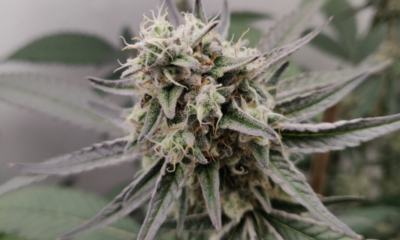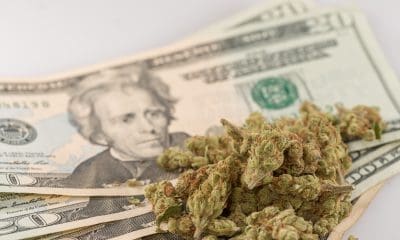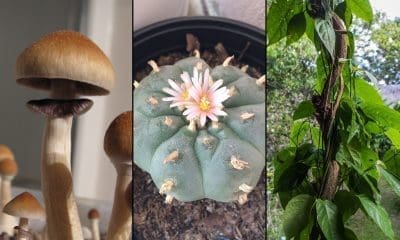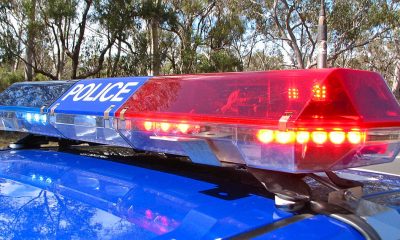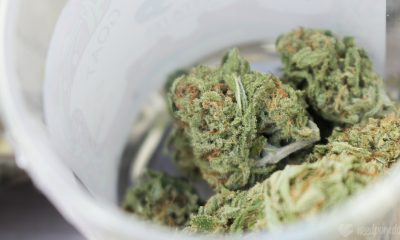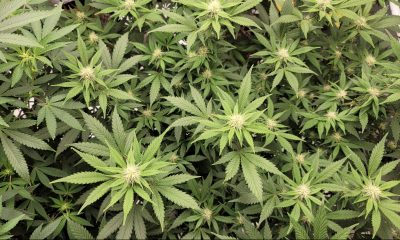Politics
Where Presidential Candidate Jay Inslee Stands On Marijuana
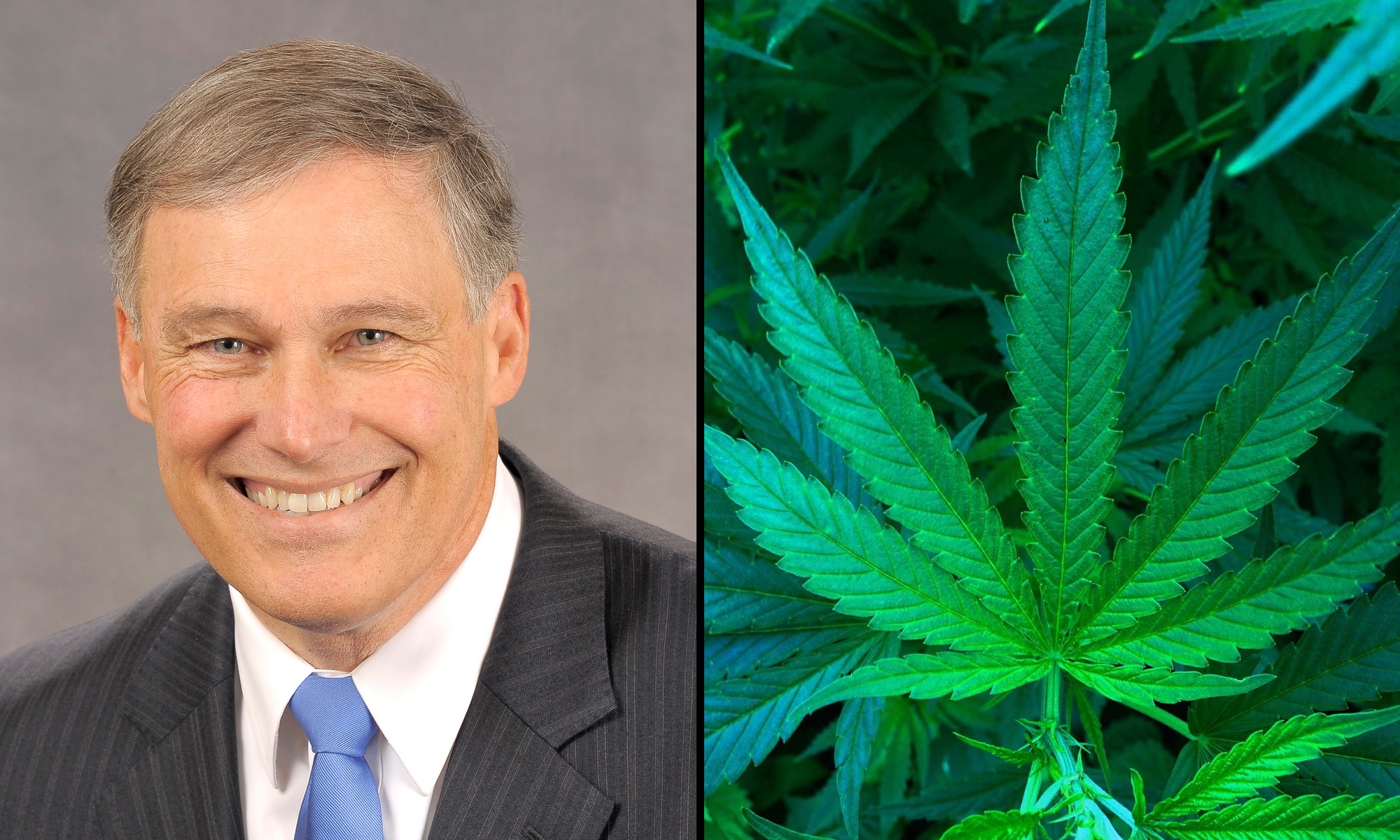
The governor of one of the first states to legalize marijuana announced that he was seeking the 2020 Democratic presidential nomination on March 1, 2019 and ended his campaign on August 21.
Although he was not on board with ending cannabis prohibition prior to voters having their say, Washington State Gov. Jay Inslee (D) has become a champion of his state’s legal marijuana market and came to its defense after the federal government seemed to be considering a crackdown. For that, he has earned top marks—an “A” grade—from NORML.
Proud to get the top grade on cannabis policy from @NORML. It's time to legalize marijuana nationally. https://t.co/aoZs5jPAmm
— Jay Inslee (@JayInslee) January 16, 2019
Shortly after announcing his 2020 bid, Inslee said Washington state legalized cannabis “and it’s about time we do it nationwide.”
This piece was last updated on August 22, 2019 to include the candidate’s statements and policy actions on marijuana since joining the race.
Legislation And Policy Actions
While Inslee initially opposed the state’s push to legalize marijuana when he was running for governor in 2012, he has a solid track record of supporting some cannabis reforms and has since become a vocal proponent of legalization.
During his stint in the U.S. House, Inslee voted in favor of floor amendments to shield states that legalized medical cannabis from federal intervention on multiple occasions—in 2003, 2004, 2005, 2006 and 2007.
He didn’t introduce any cannabis legislation, but he did sign on as a cosponsor of a bill that would have directed the Justice Department to reschedule marijuana and shield state-legal medical cannabis programs from federal enforcement.
Inslee has signed various pieces of cannabis legislation into law as governor, including a bill that allows medical cannabis patients to purchase immature plants and seeds, one that amends state law to exempt hemp from the list of controlled substances and another that allows for the cultivation of industrial hemp. Another bill that he signed in 2018 changed labeling requirements for marijuana products.
He declined to include funding for the state’s hemp program in his 2018 budget, however.
Inslee also approved bills that limit the number of plants medical cannabis patients can grow and imposed penalties for any kind of consumption of marijuana while in a moving vehicle.
Most recently, the governor launched a program designed to expedite the expungements of misdemeanor marijuana possession convictions going back to 1998.
Friday we launched our Marijuana Justice Initiative, and today I signed the first set of pardons. This effort will help relieve the burden of misdemeanors for marijuana possession and allow people to move on with their lives. #marijuanajustice https://t.co/5eRNbUm1X3 pic.twitter.com/ksgENCnmqX
— Governor Jay Inslee (@GovInslee) January 10, 2019
“It is time to end marijuana injustice in the state of Washington,” Inslee said. “It is the right thing to do because a simple possession conviction 20 years ago should not be a life sentence for a Washingtonian.”
Inslee applauded legislation providing for marijuana expungements in the Washington Senate.
The marijuana bill that passed the Senate this evening is the next big step to bring fairness and justice to those with marijuana convictions on their records. Thank you to Sen. Nguyen and Rep. @JoeFitzgibbon for helping lead this important effort. #waleghttps://t.co/KLgA2Ddc1D
— Governor Jay Inslee (@GovInslee) March 12, 2019
He signed that bill in May 2019, describing it as “a matter of fairness and justice” and stating that we “should not be punishing people for something that is no longer illegal in this state.”
Inslee was one of 20 governors to sign a letter in June 2019 urging Congress to pass bipartisan legislation that would provide state-legal marijuana businesses with access to banking services.
In April 2019, he signed legislation that allows children who are medical cannabis patients to take their medicine to school.
Children can now take medical marijuana at school, thanks to new law just signed by @GovInslee. The man in the green behind the Gov., John Barclay, fought for law bc of his daughter, River. She was too ill to attend the bill signing. #waleg pic.twitter.com/vgz1RrXt68
— Drew Mikkelsen (@drewmikkelsenk5) April 30, 2019
On The Campaign Trail
Inslee said he was open to decriminalizing psychedelics during an interview with CBS News Radio.
“I would consider it,” he said. “I do believe that our war on drugs has had all kinds of untoward effects and it’s one of the reasons that, for instance, not only have we legalized marijuana in Washington but I’ve offered pardons—I’m the first governor to offer pardons to several thousands of people who have misdemeanor convictions on their records.”
The governor participated in a Netroots Nation panel where he and Rep. Barbara Lee (D-CA) discussed cannabis issues.
He also told CNN that his state’s decision to legalize marijuana has been an “unalloyed success.”
“It has been an unalloyed success in the state of Washington and it is my belief it is time for the United States to decriminalize and legalize marijuana," Jay Inslee says, noting his home state of Washington previously legalized marijuana. #InsleeTownHall https://t.co/D7sd64Ohb9 pic.twitter.com/nRKNhRP0Nb
— CNN (@CNN) April 11, 2019
Inslee defended a member of the state’s Liquor and Cannabis (LCB) Board who faced criticism over allegations that he contributed to a “toxic culture” within the panel. He wrote a letter to state lawmakers that the member “provides a valuable perspective.”
Previous Quotes And Social Media Posts
Over the years, Inslee has become increasingly vocal about his support for marijuana reform, sharing his views in speeches, interviews and on social media.
Of course, it wasn’t always that way. When Washington’s cannabis legalization initiative made it on the state ballot in 2012 alongside his own bid for governor, he said “I’m in favor of making sure people have access to medical marijuana,” but “I’m not comfortable with voting for that initiative.” He expressed concerns that legalizing would send the wrong message to children.
“All of us want to see our kids make smart decisions and not allow any drug to become injurious in our life,” he told The New York Times.
But after more voters supported legalization than supported his election as governor on the same ballot, Inslee has become a strong advocate for the state’s commercial marijuana market.
In fact, he’s repeatedly bragged on the national stage that Washington state has “the best weed in the United States of America” and “the best regulated legal medical marijuana market in the United States.”
Inslee now touts that his state has "the best regulated legal medical marijuana market in the United States." This is not a line I've heard in past stump speeches
— Ben Jacobs (@Bencjacobs) June 24, 2018
When the Drug Enforcement Administration announced in 2016 that it wouldn’t be rescheduling cannabis under federal law in response to a petition from his predecessor as Washington’s governor, Inslee said in a press release that he was “disappointed that we don’t have a national standard for at least medical marijuana.”
“As states continue to legalize medical and recreational marijuana, there is more that the federal government must to do to provide states with legal certainty and empower the operation of safe systems across the country,” he said.
After Washington voters approved marijuana legalization, Inslee implemented new rules designed to raise public awareness about cannabis and curb youth consumption.
“This is an all-hands-on-deck effort to make sure we keep kids safe,” Inslee said. “We want every retailer to know that kids are off limits and every parent to know how to talk to kids about why marijuana isn’t safe.”
In 2017, Inslee and the governors of three other states with legal cannabis submitted several letters to then-Attorney General Jeff Sessions, requesting a meeting to discuss federal marijuana enforcement policy and urging him to keep the Obama-era Cole memo, which outlined federal enforcement priorities, in place.
“We understand you and others in the administration have some concerns regarding marijuana. We sympathize, as many of us expressed apprehensions before our states adopted current laws,” the governors wrote. “As governors, we have committed to implementing the will of our citizens and have worked cooperatively with our legislatures to establish robust regulatory structures that prioritize public health and public safety, reduce inequitable incarceration and expand our economies.”
After Sessions responded in a letter that challenged the notion that Washington state’s marijuana program was being effectively regulated, Inslee followed up and said the attorney general was basing his argument on “incomplete and unreliable data that does not provide the most accurate snapshot of our efforts since the marketplace opened in 2014.”
Make no mistake: As we have told the Department of Justice ever since I-502 was passed in 2012, we will vigorously defend our state’s laws against undue federal infringement. https://t.co/R3jJrncN9X pic.twitter.com/uM48hVH26q
— Governor Jay Inslee (@GovInslee) January 4, 2018
“We are learning important lessons as we go and continually looking for ways to improve our work on all fronts,” he wrote. “It is important for our state to know the Trump Administration is willing to work with us to ensure our success on these efforts, rather than undermining our efforts and diminishing our ability to work constructively with growers and distributors.”
Inslee also complained about Sessions’s unwillingness to directly engage with his office on marijuana policy.
“It’s a shame that he has a closed mind, and he’s much more attentive to his old ideology than to the new facts,” he told Rolling Stone. “The fears that he might have had 30 years ago have not been realized, and we wish he would just open his eyes to the reality of the situation. If he did, I think he would no longer try to fight an old battle that the community and the nation is moving very rapidly forward on.”
When Sessions did eventually rescind the Cole memo in 2018, raising concerns about a potential federal crackdown on state-legal cannabis operations, the Inslee said the state would not be making any changes to its program.
Upending our legal, voter-approved marijuana market doesn't promote stability. And there's nothing genius about turning our shores into oil fields.
— Jay Inslee (@JayInslee) January 6, 2018
He even suggested that Washington might pursue legal action against the Justice Department over the policy change, saying “we’re considering all our options.”
“Make no mistake: As we have told the Department of Justice ever since I-502 was passed in 2012, we will vigorously defend our state’s laws against undue federal infringement,” he said in a press release.
“The current attorney general has had this in his bonnet for decades and he can’t get it out of his bonnet. The fears of Jeff Sessions have not been realized.”
The next month, Inslee talked about the possibility of vacating the criminal records of individuals with prior marijuana convictions in an interview with The Stranger. He said it was important to keep in mind “what’s in the realm of possible,” but said his office was “taking a look at if there is a way to have some kind of expedited pardon capability.”
“[I]f it’s simple—a person has a recreational marijuana conviction ten years ago, then I don’t see a reason to maintain those. But, as I’ve said, we need to have some process to figure out how to do it. We haven’t figured out the right approach to this yet. That’s the bottom line.”
But he did eventually figure out a way to help people with prior marijuana records. Last month, he announced that his office would be expediting expungements for misdemeanor cannabis possession convictions through a program that an estimated 3,500 Washington residents could qualify for.
“Although our voters legalized the use privately of marijuana, we still have an injustice today that thousands of people have on their records a criminal conviction for something that is legal today,” he said at a press conference. “This is impairing their ability to reach their dreams and live their lives and raise their children.”
Our #MarijuanaJustice Initiative aims to pardon those who have a single conviction for adult misdemeanor marijuana possession. While there are over 200K marijuana convictions in WA, this effort allows us to take the first steps to address some of those now. Let’s keep going.
— Governor Jay Inslee (@GovInslee) January 5, 2019
“We are going to write an even brighter chapter of our Washington story,” Insee said of the initiative during his State of the State address last month.
The process has been slow-moving, however, with just 13 people being pardoned as of February 10, 2019.
Throughout his career, Inslee has advocated for federal marijuana reform. He joined the governors of 11 other states in a letter expressing support for a bill that would exempt states that have legalized cannabis from enforcement under the Controlled Substance Act, for example.
Thank you @elizabethforma. Our federal marijuana laws are broken — and we need to ensure this Justice department does not interfere with Washington state's thriving, well-regulated marijuana market https://t.co/o10fxqbxJ8
— Jay Inslee (@JayInslee) June 8, 2018
“Our states have acted with deliberation and care to implement programs through thoughtful and comprehensive legislation and regulations,” they wrote. “Our citizens have spoken, we are responding. We ask that Congress recognize and respect our states’ efforts by supporting and passing the STATES Act.”
Last week on @MeetThePress, I called on Congress to legalize marijuana. With an administration too focused on ideology, and not the facts on the ground, like that legalization is working in states like Washington and Colorado, we need Congress to act. https://t.co/5xPUnZCutK
— Jay Inslee (@JayInslee) January 8, 2018
Inslee said that the Washington’s marijuana law has “largely has been a success” and the “fears of those who were not supportive of our efforts really have not been realized.”
Washington State @GovInslee: “The decriminalization of marijuana, by all ways of judging it, I believe largely has been a success. The fears of those who were not supportive of our efforts really have not been realized.”
Washington State legalized recreational cannabis in 2012. pic.twitter.com/IrI4wkmAPX
— Andrea Woo | 鄔瑞楓 (@AndreaWoo) October 10, 2018
He’s also called for federal banking reform to allow financial institutions to work with cannabis businesses without facing penalties. Inslee and then-Colorado Gov. John Hickenlooper (D) sent a letter about the issue to Congress in 2013.
“Access to the banking system by these state-licensed businesses is a necessary component in ensuring a highly regulated marijuana system that will accurately track funds, prevent criminal involvement, and promote public safety,” the governors wrote. “In order to achieve the mutual federal and state goal of establishing tightly-controlled marijuana regulatory systems, we urge you to issue inter-agency guidance that will allow legal, licensed marijuana businesses access to the banking system.”
During an appearance on HBO’s Real Time with Bill Maher, the governor said “wouldn’t it be wonderful if the first time Donald Trump said something that was actually true, if he said he’d leave us alone on our marijuana decriminalization?”
When Canada legalized cannabis nationwide last year, Inslee wrote a congratulatory tweet and said it’s “time for Congress to acknowledge that marijuana legalization is working in states like Washington, Colorado, and others and legalize marijuana as well.”
Welcome @Canada to marijuana legalization. It's time for Congress to acknowledge that marijuana legalization is working in states like Washington, Colorado, and others and legalize marijuana as well. https://t.co/p1sKJ50BFu
— Jay Inslee (@JayInslee) October 17, 2018
He also predicted that there would soon come a day when marijuana could be transported across the border from Canada to Washington.
“I believe this problem will get resolved over time,” he said. “I would anticipate there are going to be significant changes in federal policy in this realm, relatively rapidly, and when that happens, this issue ought to be able to be resolved in one way or another.”
Before he announced his candidacy for the 2020 presidential election, he also predicted that marijuana would be legal in all states in the near future.
The issue has reached a “tipping point,” he said during a speech at a Washington college in January.
Personal Experience With Marijuana
Inslee said that on “two occasions in the 1970s” he consumed marijuana that was “reasonably good.”
Does Washington state really have America's best marijuana? @JayInslee has thoughts
Full pod: https://t.co/v7wim1AlB9 pic.twitter.com/7y22aRgjxv
— Pod Save America (@PodSaveAmerica) April 16, 2019
Inslee denied that he currently smokes cannabis, but in an interview with BuzzFeed, he said “but I do grow it legally and we’ve got the best weed in America from the state of Washington.” Home cultivation is prohibited in Washington, so Marijuana Moment reached out for clarification and a spokesperson for the governor denied that he actually grows cannabis.
Marijuana Under An Inslee Presidency
Inslee has predicted that federal marijuana legalization in inevitable, and if he’s elected, he’d be in a position to help fulfill that prophecy. Given both his track record on implementing reform and statements calling for legalization on the day of his campaign announcement, it seems likely that Inslee would strongly advocate for an end to federal prohibition as president.
Where Presidential Candidate Bernie Sanders Stands On Marijuana




